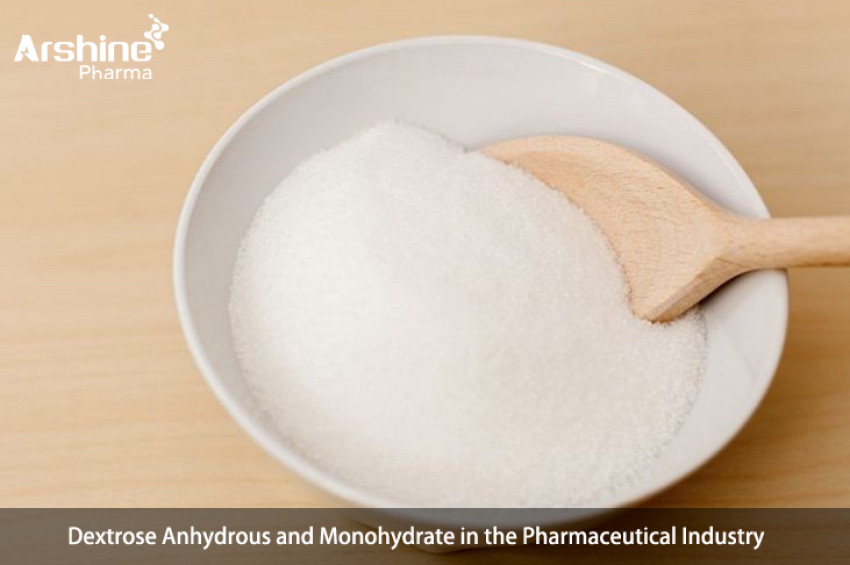
Introduction: Dextrose Anhydrous/Monohydrate Supplier and Beyond
Dextrose, in its anhydrous and monohydrate forms, represents a fundamental ingredient in the pharmaceutical industry with a wide range of applications. These versatile sugars are used not only as a source of energy but also for their unique properties in drug formulations. In this comprehensive exploration, we delve into the history, characteristics, mechanisms of action, and current applications of dextrose anhydrous and monohydrate in the pharmaceutical sector. We also uncover the emerging trends and, at the conclusion of this article, introduce Arshine Pharmaceutical Co., Limited, a reputable supplier dedicated to ensuring the availability of high-quality dextrose products for the pharmaceutical industry.
Historical Perspective
Dextrose, also known as glucose, is a simple sugar that has been an integral part of human life since time immemorial. Historically, it was obtained from various sources, including fruits, vegetables, and honey. The term "dextrose" originates from the Latin words "dexter" (right) and "glucosus" (sweet), signifying its right-handed configuration and sweet taste.
Dextrose anhydrous, a crystalline form of glucose, was first isolated from starch in the early 19th century. This marked a pivotal moment in the development of glucose-based products. Subsequently, the discovery of dextrose monohydrate, a hydrate form with a water molecule, further expanded its applications.
Characteristics of Dextrose Anhydrous and Monohydrate
Chemical Structure: Dextrose, whether in the anhydrous or monohydrate form, is a monosaccharide with the molecular formula C6H12O6. It is an isomer of fructose and galactose and exists as a six-carbon sugar.
Physical Properties:
- Dextrose Anhydrous: This form is a white, crystalline powder with a clean, sweet taste. It is highly soluble in water.
- Dextrose Monohydrate: The monohydrate form contains one water molecule, making it a white, crystalline powder that is also soluble in water.
Sweetness: Dextrose is approximately 70-75% as sweet as sucrose (table sugar). It provides a mild sweetness without any off-flavors.
Caloric Value: Like other sugars, dextrose provides calories when consumed, contributing approximately 4 calories per gram.
Hygroscopicity: Both anhydrous and monohydrate dextrose exhibit hygroscopic properties, meaning they can absorb moisture from the environment, which can lead to clumping or caking.
Mechanisms of Action and Pharmaceutical Relevance
Dextrose, in its various forms, plays multiple crucial roles in pharmaceutical formulations:
Energy Source: Dextrose is a vital source of energy for the human body. In medical settings, it is used intravenously to provide a quick energy source to patients, especially in emergency situations or for individuals who cannot consume food orally.
Excipient: Dextrose is used as an excipient, a non-active ingredient, in tablet and capsule formulations. It helps with the compression and disintegration of tablets and the encapsulation of powders.
Stabilizer: In certain pharmaceutical formulations, dextrose is used as a stabilizer to prevent the degradation of active pharmaceutical ingredients (APIs) due to environmental factors such as humidity.
Lyophilization: Dextrose is employed in freeze-drying (lyophilization) processes for the preservation of biological and pharmaceutical products. It acts as a cryoprotectant and stabilizer during freezing and drying.
Current Pharmaceutical Applications
Dextrose anhydrous and monohydrate are essential components in various pharmaceutical products and processes:
Intravenous (IV) Solutions: Dextrose solutions are widely used in healthcare settings as intravenous fluids to provide hydration and an immediate source of energy to patients. Common concentrations include 5% and 10% dextrose solutions.
Tablet and Capsule Formulations: Dextrose is used as an excipient in tablet and capsule formulations. It aids in the manufacturing process and contributes to the disintegration of the dosage form for effective drug release.
Stabilizing Formulations: In some drug formulations, dextrose acts as a stabilizing agent to preserve the integrity and effectiveness of active pharmaceutical ingredients, particularly those sensitive to environmental factors.
Lyophilization: The use of dextrose as a cryoprotectant in the freeze-drying process is crucial for the preservation of biologics, vaccines, and certain pharmaceuticals.
Emergency Medical Care: In emergency medical care, dextrose solutions are administered intravenously to treat hypoglycemia, a life-threatening condition resulting from critically low blood sugar levels.
Oral Pharmaceutical Powders: Dextrose is often used as a bulking agent in the production of oral pharmaceutical powders, aiding in the homogeneity and flowability of the powder.
Emerging Trends in Dextrose Anhydrous and Monohydrate Applications
As the pharmaceutical industry evolves, new trends and applications for dextrose continue to emerge:
Intravenous Nutrition: Dextrose solutions are gaining attention as components of total parenteral nutrition (TPN), providing patients with essential nutrients intravenously. The development of customized TPN solutions to meet specific patient needs is an emerging trend.
Dextrose-Based Excipients: Dextrose is being explored as a multifunctional excipient in tablet and capsule formulations. Its role in improving drug release profiles and stability is a focus of research.
Personalized Medicine: The pharmaceutical industry is moving towards personalized medicine, and dextrose may play a role in tailored formulations designed to meet the unique needs of individual patients.
Advanced Lyophilization Techniques: Innovations in freeze-drying processes are leading to more efficient and cost-effective methods of preserving pharmaceuticals and biologics, with dextrose continuing to serve as a cryoprotectant.
Sustainability: As sustainability becomes a growing concern, there is a trend towards using natural excipients and sugars like dextrose in pharmaceutical formulations, reducing the environmental impact of pharmaceutical production.
https://www.arshinepharma.com/new/Dextrose-Anhydrous-Monohydrate-Supplier




